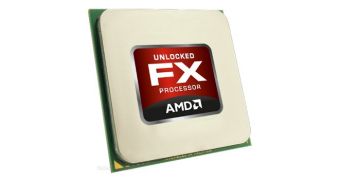With all the excitement stirred by ARM processors, some may be wondering if maybe the architecture will replace the x86 technology that Intel, VIA and AMD use. The answer, AMD firmly believes, is no.
Advanced Micro Devices can really only speak for itself, but it is quite confident that there is no way x86 processors, with integrated GPUs or otherwise, will fail to last beyond the next few years.
AMD saw fit to come out and make this statement because of all the rumors concerning its chip practices.
As people may know, the company has decided to stop measuring itself against Intel and place more emphasis on performance and design wins.
The company has also signed a deal with ARM, of all things, so that it may create chips of that type as well.
Thus, some may think that the Sunnyvale, California-based company foresees a decline in x86 importance.
This is not so, the company's CEO stated during the Credit Suisse Technology Conference earlier this week. In fact, the man believes that x86 will stay strong and important for two or three decades more at least.
“There are no doubts that x86 is going to be a huge portion of our business,” CEO Rory Read said.
“I think that it is going to be an important segment of our business for 5 – 10+ years. The x86 is going to be here long after I am retired. […] There will be x86 applications just like there are mainframe applications today, 25 – 30 years later. That is not going to fundamentally change.”
Nevertheless, AMD's leader doesn't deny that low-power chips are more important than ever. Processor design and manufacturing has really come a long way lately. CPUs are so strong that Intel and AMD can actually afford laying off on performance in favor of energy efficiency, as they will still be able to run games and whatever else.
This is what makes ARM so appealing, especially now that 64-bit instructions are supported (ARMv8). Still, expectations were clearly exaggerated.

 14 DAY TRIAL //
14 DAY TRIAL //